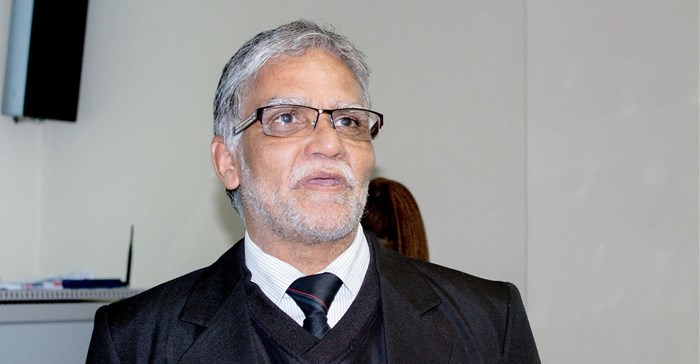What will the accounting profession look like in 5 years?
The conversation around the future of the accounting profession usually veers to digitisation of the profession or the role artificial intelligence (AI) will play in transforming the practitioner's duties. However, there are additional predictions one can make about how accounting will or should evolve over the next five to 10 years.

Professor Rashied Small, education and training executive at Saipa.
Technology
Technologies like AI, internet of things (IoT), blockchain and cloud computing will continue to disrupt classical accounting but won’t replace accountants. Rather, the practitioner’s value proposition will migrate away from manual transaction entry, compiling reports and number crunching. Instead, they will channel automatically generated insights into actionable business development initiatives, risk management plans, flexible and sustainable business models, and much more. In short, today’s accountant will be tomorrow’s strategic advisor.
Persistence of accounting
The US Bureau of Labour Statistics predicts a 10% growth in the demand for accountants and a 19% growth in the demand for financial managers until 2026. That's better than the average US profession and, with the need for accountants growing worldwide, a similar projection would be valid for South Africa. So, robots and AI’s aside, the accountant's services should remain a key business function for at least the next decade.
Gender equality
Iceland recently made it illegal for a man to earn more than a woman. This is a very positive step forward in combating gender discrimination, but it does little to address concerns that many professions are still dominated by men. A quick analysis of the membership count renders a gender ratio of approximately one female accountant to every two males.
It is therefore not a prediction, but a fact that the profession needs to change dramatically over the next decade. Firms must actively encourage women, who have been marginalised in the past, to enter the profession and give them assurance of equal pay, opportunities and treatment.
Empowerment
In five to 10 years from now, a new generation of accountants will have entered the workforce. But will they represent South Africa’s true demographics? To ensure they do, South Africa needs more black accounting candidates today. First, though, we must acknowledge the economic constraints many young black Africans face and provide stronger programmes to help them reach their goal. This includes subsidised education, possible earn-while-you-learn opportunities, and career support that turns an unattainable dream into an achievable future.
Stronger regulation
Earlier this year, it was reported that there was a cross-party consensus in the UK parliament that the Big 4 firms have become complacent. The country’s Competition and Markets Authority (CMA) has suggested forcing companies to use two alternating audit firms with only one being a Big 4 practice. This will increase competition from smaller firms, like Grant Thornton or BDO, compelling the giants to take service excellence and adherence to standards seriously. Likewise, in South Africa, stricter laws are being developed in the wake of several high-profile scandals. Such attempts to curb misconduct will likely pick up pace around the world. By 2030, legislation governing accounting practices will be even more restrictive and specially appointed industry watchdogs with legal clout could exist. The ROSC report published in June 2013 recommended that both the auditing and the accounting professions should be regulated. Professional accounting organisations, including the Independent Regulatory Board for Auditors (IRBA) made a submission to National Treasury about the proposed regulations of the accountancy profession, however, the discussion on this matter has been delayed.
Advanced standards
Does the quality of historical data affect AIs decision-making abilities? Can AI learn unethical behaviour? How can accountants give assurance on an AI’s financial assumptions based on data too large for humans to analyse? Could AI’s spontaneously invent cryptic accounting processes and should we stop them? Global standards bodies have begun asking these difficult questions to develop new standards that enable automation while still protecting the public interest. These standards will, therefore, become much more sophisticated, regulating both humans and machines.
Technology-oriented training
Tertiary education, initial professional development (IPD) and continuing professional development (CPD) frameworks will evolve to complement technology adoption. They should also take cognisance of the professional accountant’s ever-changing role in response to this trend. As mentioned, soft skills will enhance the practitioner’s ability to bring meaningful solutions to the table based on the insights generated by intelligent systems. So they will feature prominently in these programmes. Many future accountants, now operating at an advanced strategic level, may even choose to pursue advanced qualifications, like an MBA.
Embracing the future
While accountants will still be in demand for quite some time, they must start preparing themselves to move in synch with the forces that will shape the industry over the next decade. By doing so, they will promote themselves to a more valued position than ever.
About the author
Professor Rashied Small is the education and training executive at the South African Institute of Professional Accountants (Saipa).